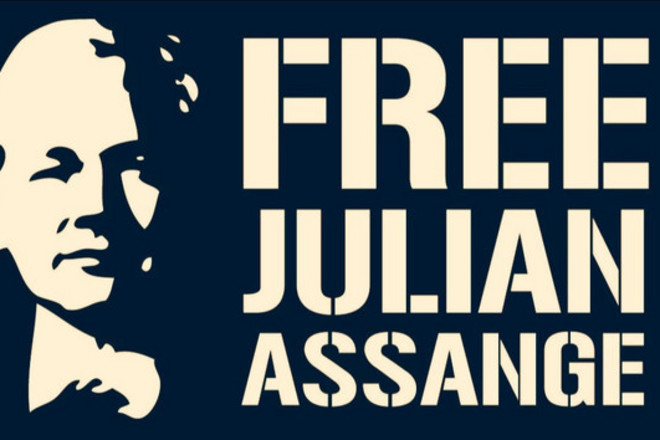This story recounts the attempts of one mortal man and humanity at large to establish everlasting peace instead of waging perpetual war. A struggle of good over evil.
In 1963, Ethiopian Emperor Haile Selassie addressed the United Nations in a speech not all that dissimilar to the appeal he made to the League of Nations in 1936. This speech is typically credited as the inspiration for Bob Marley's legendary hit song "War".
Haile Selassie was Ethiopia’s regent from 1916 until 1930 and Emperor from 1930 to 1974. A dictator to some, a messiah to others: His Imperial Majesty Emperor Haile Selassie I The First, Jah Rastafari.
The League of Nations was an intergovernmental organization founded on January 10, 1920 as a result of the Paris Peace Conference that ended the First World War. At its greatest extent from September 28, 1934 to February 23, 1935, 58 nation-states were amongst its members.
The League lasted 26 years and was replaced by the United Nations (UN) after the end of the Second World War on April 20, 1946. The UN inherited a number of agencies and organizations founded by the League.
The nation-state of Ethiopia was a member of the League from 1923 onwards, as well as a member of the United Nations since 1945.
As Ethiopia's regent, Haile Selassie secured Ethiopia's admission to the League of Nations in 1923 and abolished slavery in the empire in 1924. He engaged in a tour of Europe that same year, inspecting schools, hospitals, factories, and churches; this left such an impression on the future emperor that he devoted over forty pages of his autobiography to the details of his European journey.
He was crowned by Empress Zewditu as negus ("king", in Amharic) in 1928 and following the sudden death of the Empress was made Emperor in 1930.
In 1936 he was forced into exile after Italy invaded Ethiopia in a conflict better known as the Abyssinia crisis. Haile Selassie became the face of the resistance as he went before the League of Nations in Geneva, Switzerland, and appealed for assistance.
There is no precedent for a Head of State himself speaking in this assembly. But there is also no precedent for a people being victim of such injustice and being at present threatened by abandonment to its aggressor. It is my duty to inform the Governments assembled in Geneva, responsible as they are for the lives of millions of men, women and children, of the deadly peril which threatens them, by describing to them the fate which has been suffered by Ethiopia. It is not only upon warriors that the Italian Government has made war. It has above all attacked populations far removed from hostilities, in order to terrorize and exterminate them. - Emperor Haile Selassie
Read the full APPEAL TO THE LEAGUE OF NATIONS: Haile Selassie, June 20, 1936.
In 1963, Haile Selassie addressed the United Nations, in a speech not all dissimilar to the appeal he made to the League of Nations in 1936. In fact, the opening statement of the address refers to that event:
Twenty-seven years ago, as Emperor of Ethiopia, I mounted the rostrum in Geneva, Switzerland, to address the League of Nations and to appeal for relief from the destruction which had been unleashed against my defenseless nation, by the Fascist invader. I spoke then both to and for the conscience of the world. My words went unheeded, but history testifies to the accuracy of the warning that I gave in 1936. Today, I stand before the world organization which has succeeded to the mantle discarded by its discredited predecessor. In this body is enshrined the principle of collective security which I unsuccessfully invoked at Geneva. Here, in this Assembly, reposes the best - perhaps the last - hope for the peaceful survival of mankind. - Emperor Haile Selassie
Read the full ADDRESS TO THE UNITED NATIONS: Haile Selassie, October 4, 1963.
This speech is typically credited as the inspiration for Bob Marley's legendary hit song "War". In particular this section of the speech that can be heard almost verbatim in “War”:
The Emperor's speech
-
that until the philosophy which holds one race superior and another inferior is finally and permanently discredited and abandoned;
-
that until there are no longer first-class and second class citizens of any nation;
-
that until the color of a man's skin is of no more significance than the color of his eyes;
-
that until the basic human rights are equally guaranteed to all without regard to race;
-
that until that day, the dream of lasting peace and world citizenship and the rule of international morality will remain but a fleeting illusion, to be pursued but never attained;
-
and until the ignoble and unhappy regimes that hold our brothers in Angola, in Mozambique, and in South Africa in subhuman bondage have been toppled and destroyed;
-
until bigotry and prejudice and malicious and inhuman self-interest have been replaced by understanding and tolerance and good-will;
-
until all Africans stand and speak as free beings, equal in the eyes of all men, as they are in the eyes of Heaven;
-
until that day, the African continent will not know peace. We Africans will fight, if necessary, and we know that we shall win, as we are confident in the victory of good over evil.
The Abyssinian crisis of the 1930’s, the appeals and addresses to the world and the (lack of) resolution to this conflict and of others that followed are an example of history’s tendency to repeat itself.
If we ignore the words from Haile Selassie,
if we fail to recognize the underlying patterns,
if we fail to realize that the same trick is being played upon us, over and over again,
it is safe to conclude that it will happen again.
Perpetual war...
Here’s a long but by no means complete set of reminders:
Afghanistan: 1979 - 1989, 1989 - 1992, 2001 -
Algeria: 1954 - 1962
Angola: 1961 - 1975, 1975 - 2002
Bosnia: 1992 - 1995
Cuba: 1953 - 1959, 1961
Colombia: 1964 - 2016
Congo: 1960 - 1965
Egypt: 1953, 1967, 2011
Ethiopia: 1934 - 1941, 1960, 1961 - 1991
Iran: 1951, 1967, 1979, 1980 - 1988
Iraq: 1959, 1963, 1974, 1980 - 1988, 1990 - 1991, 2003
Lebanon: 1958, 1982 - 2000, 2006
Mozambique: 1964 - 1974, 1977 - 2002
Nicaragua: 1961 - 1990
Northern Ireland: 1969 - 1998
Palestine: 1948, 1967, 1973
Korea: 1950 - 1953
Sudan: 1955 - 1972, 1983 - 2005
Syria: 1963, 2011 -
Vietnam: 1946 - 1954 , 1955 - 1975, 1979

